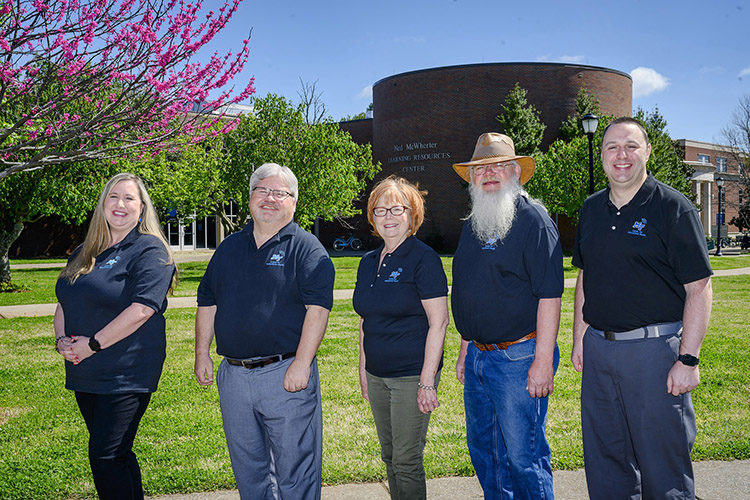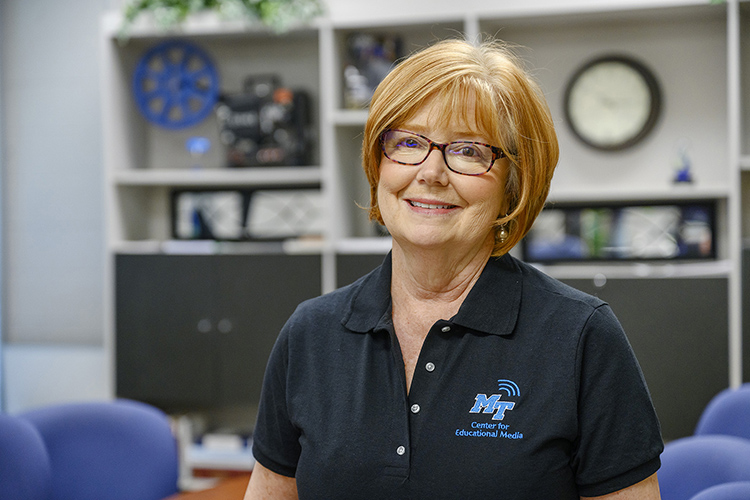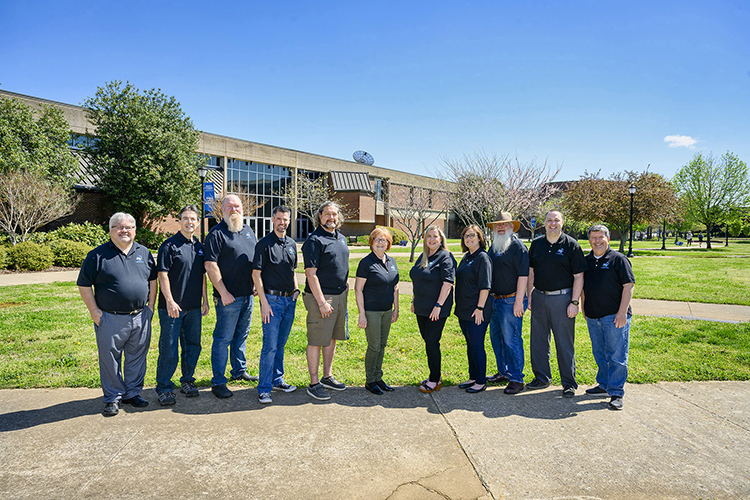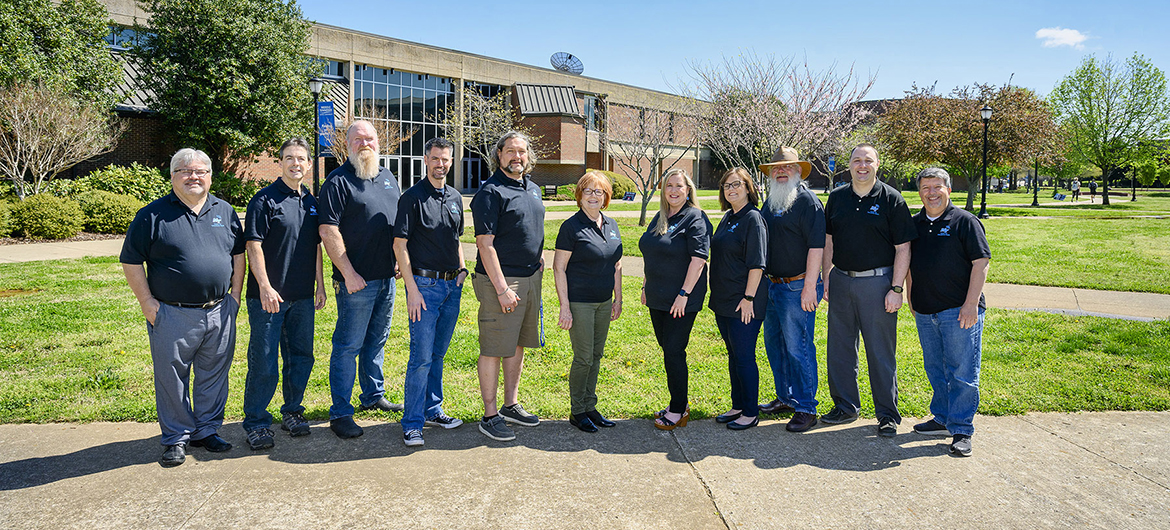MTSU’s Center for Educational Media recently expanded its already robust offerings of professional development and support for Tennessee teachers by launching their newest initiative for special education teachers, called the SPED Collaborative, earlier this year.
This new initiative — part of the larger PK-12 Collaborative serving preschool through 12th-grade school counselors and teachers of English language learners — connects educators and stakeholders across the state for training and professional networking.
CEM Director Laura Clark said the center extended this training to teachers in special education, or SPED, in response to the great demand following the success of their other PK-12 Collaborative initiatives.
“We applied our same model for this third collaborative: the SPED Collaborative,” Clark said. “Our first session had 245 viewers, which was a great turnout. We look forward to a growing number of teachers joining our future SPED Collaborative sessions.”
With the in-house development of its first collaborative for teachers of English Language Learners, or ELL teachers, in 2017, the CEM responded to a need to serve and connect educators of specialties prone to isolation. These teachers may be the only ones in their discipline across their school or entire district having no other colleagues with whom they can collaborate or share ideas. The same challenge applied to school counselors and SPED teachers.
Five years later, Clark said the center is now known among Tennessee educators for these collaboratives. At the end of May 2022, the number of virtual participants in the PK-12’s three initiatives totaled more than 4,300. That number is larger when the participants in on-site sessions are counted.
Clark, originally from Memphis, Tennessee, credits the collaboratives’ success to authentically meeting the needs of the education community — needs that are identified by the educators themselves through requests made to CEM.
“Attendees can take what they learn at our trainings immediately back to their classrooms,” she said. “We invite practicing Tennessee teachers to be our presenters. We also partner with the Tennessee Department of Education and with statewide professional organizations, which gives us a three-point partnership incorporating resources and multiple perspectives to deliver a successful, sustainable model for authentic teacher professional development.”
Jenny Marsh, CEM coordinator, recently pitched another idea for more integrative training to serve these crucial educators — a Cross Collaborative to bring together those who may work in education “silos” and connect them where their roles overlap to improve service to students.
The first took place with ELL teachers and school counselors earlier this year.
“The discussion centered on how these two professionals in schools work together to support students in Tennessee schools,” Clark said. “We will add SPED teachers to this discussion at a Cross Collaborative this summer.”
Marsh said in addition to the reward of impacting students and teachers through her work at the CEM, the collegial atmosphere of the department and her coworkers’ diverse skill sets and unique personalities are her favorite parts of the job.
“We would not be able to do the job we do without every single person’s contribution,” said the Waverly, Tennessee, native. “It is one thing to love what you’re doing; it is another to love what you are doing and love whom you are doing it with.”

Full-fledged media production, audiovisual engineering services
The CEM primarily serves the needs of the university’s College of Education with a team of skilled media producers and audiovisual service, or AVS, engineers that support the campus and larger pre-K-12 education community.
The staff provides an on-site professional development space for pre-K-12 educators and leaders, supports the virtual delivery of conferences and seminars across campus including those created in partnership with the COE and provides AVS engineering services such as media infrastructure, equipment checkout and repair.
This past year, staff also took on media grant projects, one from the U.S. Department of Agriculture in partnership with the university’s School of Agriculture and another from the Tennessee Department of Environment and Conservation in partnership with the university’s Center for Health and Human Services and College of Basic and Applied Sciences.

Clark hopes to continue to grow and fine-tune the CEM’s professional development and media production work going forward.
“The CEM staff is a group of people who blend creativity, experience and intelligence in order to design and produce some impressive projects in video and virtual production,” Clark said. “Through the PK-12 Collaborative, we want to make training even better for the teachers who participate with us and reach even more teachers than now. Through our AVS production and engineering teams, we want to grow our production work to continue to build that AVS engineering infrastructure and support on campus.
“We work with a creative faculty at MTSU, and we’re having more requests for how to incorporate video for instruction, communications, promotion and recruitment here at MTSU. I love working with the people at CEM and in the College of Education at MTSU.”
To learn about the CEM’s services and upcoming teacher training, visit the website here https://www.mtsu.edu/cem/.
— Stephanie Barrette (Stephanie.Barrette@mtsu.edu)



COMMENTS ARE OFF THIS POST